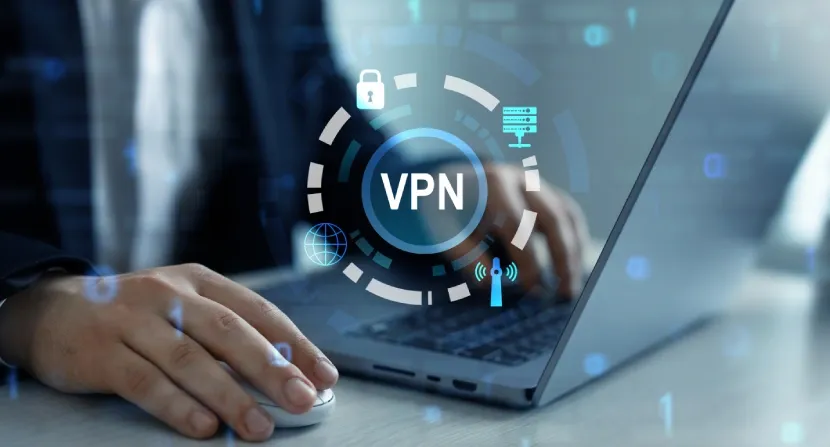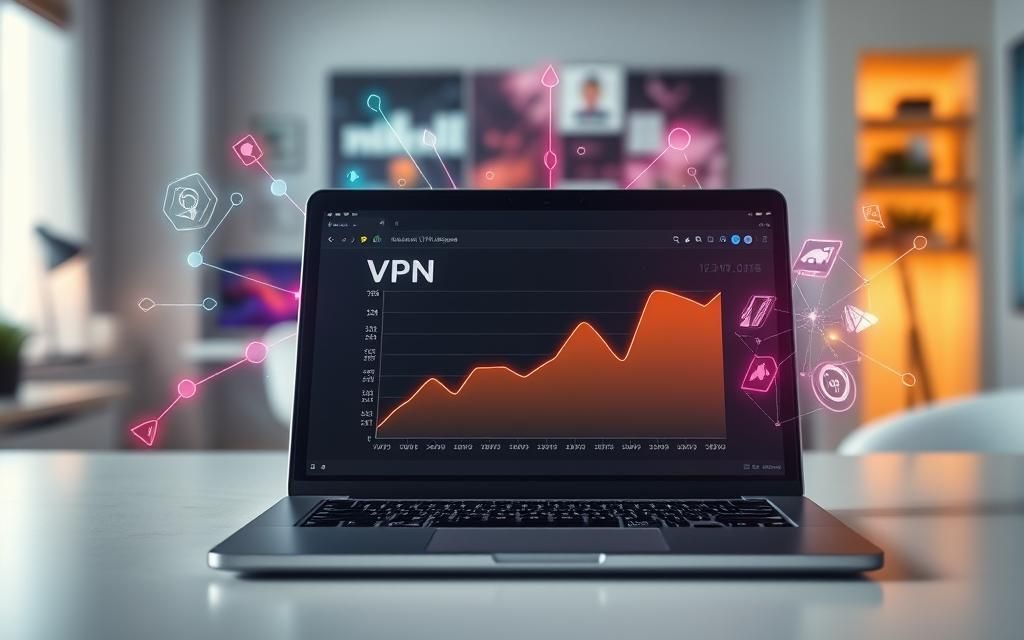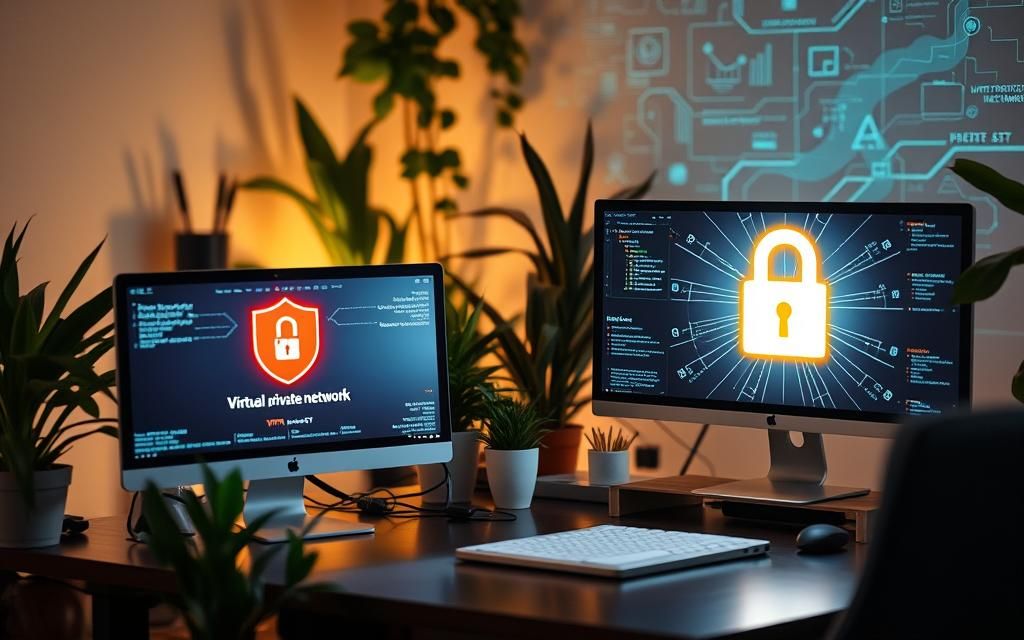Welcome to our insightful article on the topic of online privacy and VPN services. In today’s digital age, where our every move is tracked and our personal information is constantly at risk, it’s essential to explore measures that can help protect our online identities. One popular tool that often comes to mind is a Virtual Private Network, or VPN. In this article, we will delve into the concept of VPNs and their impact on your online anonymity. We’ll address the question that many people ask: “Does a VPN make you anonymous?” By understanding the workings of VPN services and their potential to enhance your online privacy, you’ll be equipped to make more informed decisions about your digital security. Throughout our exploration, we’ll discuss the various aspects of VPN services that contribute to online privacy, including encryption, IP masking, and other security measures employed by reputable VPN providers. We will also uncover the limitations and considerations of using a VPN for anonymity, exploring factors such as VPN logging policies, jurisdiction, and potential vulnerabilities. Furthermore, we won’t stop at VPNs alone. We’ll also explore additional measures and practices that can be combined with VPN usage to achieve true anonymity online. From adjusting browser settings to utilizing encrypted messaging apps and other tools, we’ll provide you with a comprehensive guide on safeguarding your digital footprint. So, let’s embark on this journey together and discover the truth behind the question, “Does a VPN make you anonymous?” By the end of this article, you’ll have all the information you need to navigate the realm of VPN services and online privacy. Stay tuned! Understanding VPNs and Anonymity When it comes to protecting your online privacy and ensuring anonymity, Virtual Private Networks (VPNs) have emerged as a popular solution. But what exactly is a VPN and how does it work? A VPN is a technology that creates a secure and encrypted connection between your device and the internet. It acts as a protective shield, concealing your online activities from prying eyes and potential cyber threats. By routing your internet traffic through an encrypted tunnel, a VPN provides an additional layer of security while preserving your anonymity. But what does anonymity really mean in the context of VPNs? While VPNs can offer significant privacy benefits, it is important to understand their limitations. Although a VPN can hide your IP address and encrypt your data, it does not completely make you anonymous online. When you use a VPN, your IP address is replaced with the IP address of the VPN server you connect to, making it more challenging for websites and online services to track your real location. Additionally, the encrypted tunnel created by the VPN ensures that your online activities are not easily visible to your internet service provider (ISP) or government agencies. However, it’s important to note that VPNs cannot completely erase your digital footprints. While they provide a strong layer of protection, certain online activities can still be traced back to you, such as sharing personal information on social media platforms or logging into accounts that contain identifiable information. The Limitations of VPN Anonymity Although VPNs can enhance your online privacy, it is crucial to be aware of their limitations: VPN Service Provider Logs: Some VPN providers may keep logs of your online activities, which can compromise your anonymity if accessed by third parties. Data Leaks: In rare cases, VPNs may experience data leaks that can expose your real IP address or other sensitive information. Browser Fingerprinting: Certain online tracking techniques, such as browser fingerprinting, can still identify you even when using a VPN. Understanding these limitations helps set realistic expectations for VPN usage. While VPNs are an essential tool for safeguarding your online privacy, it’s important to combine them with other practices and tools to achieve true anonymity. Factors Importance Encryption High Logging Policies Medium Server Locations Medium Connection Speed High This table highlights some important factors to consider when choosing a VPN service. By evaluating these factors, you can make an informed decision and take another step towards ensuring your online privacy and anonymity. The Role of VPN Services in Online Privacy When it comes to ensuring your online privacy and protecting your personal information, VPN services play a vital role. These services employ various features and characteristics to enhance your digital anonymity and safeguard your sensitive data. One of the key components of VPN services is encryption. By encrypting your internet traffic, VPNs create an additional layer of security, making it difficult for anyone to intercept or decipher your data. This encryption ensures that your online activities remain private and protected from potential threats. In addition to encryption, VPN services also offer IP masking. Your IP address is like a digital fingerprint that can be used to track your online activities and identify your location. However, with a VPN, your IP address is replaced with the IP address of the VPN server you connect to, providing you with a new virtual identity and making it virtually impossible for anyone to trace your online presence back to you. Furthermore, VPN services employ various other security measures to enhance your online privacy. These include features such as kill switch, which instantly disconnects your internet connection if the VPN connection drops, preventing any data leaks. VPN providers also often offer DNS leak protection, ensuring that your browsing remains completely anonymous by preventing your DNS requests from being exposed. The role of VPN services in internet security and digital anonymity cannot be overstated. By encrypting your traffic, masking your IP address, and implementing robust security measures, VPN services act as a powerful tool in protecting your online presence and ensuring that your personal information remains confidential. Limitations and Considerations While VPN services offer a range of benefits for browsing anonymously and enhancing online privacy, it’s important to understand their limitations and consider various factors that can impact the level of anonymity provided. In this section, we’ll discuss some key considerations when using VPN services. VPN Logging Policies One important





